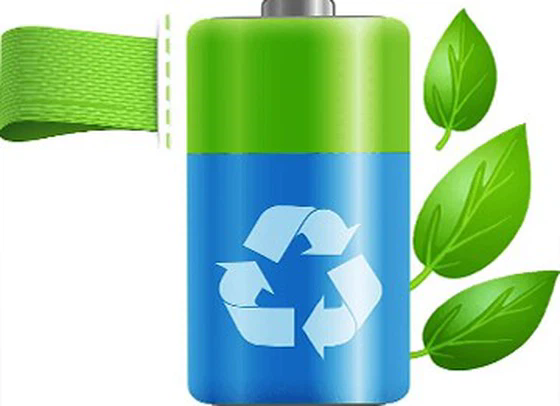Electric vehicles are popular among consumers, and the rapid growth of the electric vehicle market is conducive to reducing greenhouse gas emissions and improving urban air quality. However, EVs present serious waste management problems for recycling at the end of their useful life. At the same time, recycling lithium-ion batteries from electric vehicles is also a valuable source of secondary materials. Although reuse and current recycling methods can divert a portion of waste away from trash, EVs will face serious cumulative burden challenges given the rapid growth of the EV market.
Storing batteries before re-use or final disposal, makes electric vehicles suffer from the extraction of raw materials and the generation of lithium-ion batteries (LIBs), which hold considerable value. The energy storage market is booming. In areas with weak grids, energy storage is of greater concern. Renewable energy requires a balance between supply and demand, and secondary-use battery projects have begun to develop. Recycling electric vehicle batteries is also a valuable resource, as the elements and materials in batteries are critical for a stable supply chain. Managing the resources consumed by battery manufacturing is critical to the sustainability of the automotive industry. If more usable materials can recover from discarded Li-ion batteries, and use them for secondary applications, the net Li-ion battery impact will greatly reduce, and the use and life cycle materials will be optimized. At the same time, secondary use creates potential value streams that can offset recycling costs. And in some regions, there is already a healthy market for used EV batteries for energy storage.
For now, the economic value of reuse is more significant, on the one hand, the refurbishment cost of putting the battery into a second use, and on the other hand, the cost of lithium-ion battery recycling. Recycling would be the most economically popular option if the price of second-use is lower than the combined cost of refurbishment and recycling. Over time, the supply of used EV batteries is expected to far exceed what the second-hand market can absorb. Therefore, recycling must be the ultimate fate of all LIBs.
Storing used batteries is unsafe
and environmentally hazardous, and if lithium-ion batteries cannot reuse
directly, they must be repaired or recycled. For most re-manufacturing, battery
packs must disassemble into at least one module. Removing battery packs from
automotive applications requires specialized high-voltage training and
insulated tools to prevent operator shock or battery pack short circuits. A
short circuit can result in overheating and thermal runaway. For safety
reasons, the reuse of batteries requires an accurate assessment of the state of
health to confirm whether the battery is suitable for reuse, re-manufacturing,
or recycling.

Different automakers have taken different approaches to delivering power, and the physical configurations of EVs on the market require disassembly methods. Different form factors, modules, component formats, and capacities may also limit reuse, requiring recovery methods. Common recycling methods are as below:
1. pyrometallurgy recycling
2. separation of physical materials
3. Hydro-metallurgical metal recycling
4. Direct recycling
Therefore, configure the original charger when purchasing a lithium battery electric vehicle; the built-in lithium battery is smarter and safer Advanced BMS, highly guarantees the safety of batteries; the battery pack using brand-new A-grade batteries has superior performance and long service life; purchase standard brand batteries through regular channels.
The electric vehicle revolution will fundamentally change the automotive industry, considering safety and the environment, where reuse can maximize economic value and reduce environmental impact. Sorting technology, separation of electrode materials, process flexibility, design for recycling, raising the bar for battery manufacturers, optimizing battery pack design for ease of disassembly, and early consideration of re-manufacturing, reuse, and recycling in design can significantly improve the recycling process efficiency.
